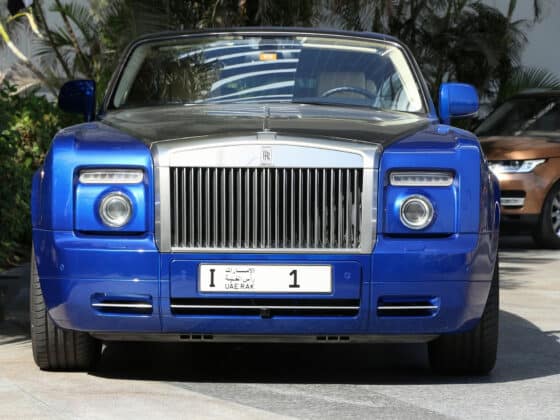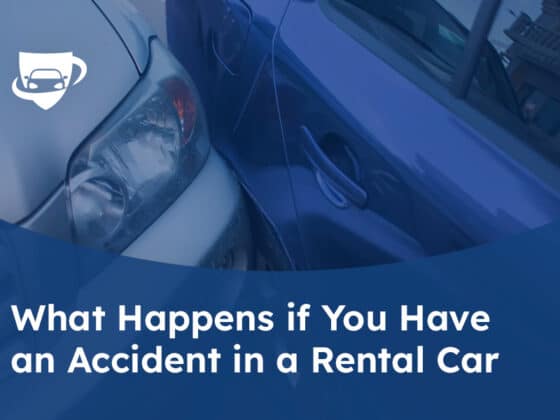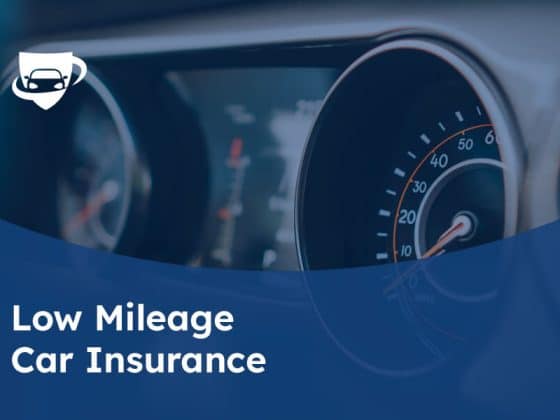If you are looking for full coverage car insurance, collision insurance is among the first protection plans you’ll need. However, do you know exactly how it works and which companies offer the lowest prices?
We at Carsurance provide the full guide here. You will find the complete list of cheap and well-rated companies offering collision coverage. Furthermore, you’ll learn when you need the coverage, when to drop it, and what limits are sufficient for you.
Collision Insurance Definition
Overall, it’s an optional protection plan that insurance companies charge extra for, which pays for the damage to your vehicle sustained in a covered accident.
In fact, it’s not mandatory by law, but a car lender often requires it. Moreover, it pays up to your vehicle’s actual cash value (ACV).
In general, this means that you will be getting an amount equal to the price of your car on the used car market that’s the same make and model as yours. Furthermore, a collision protection plan always carries some deductible.
What Does Auto Collision Insurance Cover?
In a car insurance policy, collision insurance covers damage to your car sustained in a crash with another vehicle, an inanimate object, and an accident where your car rolls or falls over. It doesn’t matter who was at fault for the payment to trigger.
Then again, it does not cover crashes with animals — that falls under comprehensive insurance. However, if you hit a tree or fence, your insurer will pay for the damages to your vehicle.
How Does Collision Insurance Coverage Work?
To make everything clear, let’s use an example. Imagine that you are driving a 2020 Buick Regal Sportback worth around $26,000, and you rear-end a 2022 Ram 1,500 Classic Crew Cab worth about $40,000, and both of the vehicles are declared totaled.
So, let’s say that your property damage liability limit is $50,000 and that your limit is $20,000 with your auto insurance collision plan, both with a $1,000 deductible.
All in all, the total damage is $66,000: $26,000 for your car and $40,000 for the other driver’s vehicle. Out of that, your liability coverage limit will cover $40,000 minus the $1,000 deductible. So, collision insurance covers only up to $19,000, which is your limit minus the deductible.
This means you will pay $8,000 out of your pocket, and your premiums will undoubtedly increase. However, your liability and collision coverages will save you the bank-breaking $58,000. That’s why it’s beneficial to carry sufficient insurance limits.
What Isn’t Covered by Auto Collision Coverage?
This protection plan does not cover any of the following:
- Damage to your vehicle that did not result from a driving accident — These include theft, natural disasters, riots, and vandalism. In fact, comprehensive coverage reimburses for these expenses.
- Damage to other people’s property — These include their vehicles, phones and tablets, mailboxes and fences, and similar items. Namely, this is covered under liability insurance.
- Any medical bills — Collision insurance doesn’t pay for either your or another person’s medical bills. MedPay or PIP pay for the former, while the bodily injury portion of your liability coverage pays the latter.
Moreover, you will not receive any payments for damage that exceeds your limit. If another driver was at fault, you could expect payment from their liability if they were adequately insured.
And if you want to be sure you will get reimbursed no matter what the other driver’s limits are, uninsured/underinsured motorist coverage is the one to choose.
When Do You Need Collision Insurance?
If you bought your vehicle using a loan, the chances are that both collision and comprehensive coverages were mandatory in the lease agreement to cover any potential leased car accidents. Moreover, some lenders even require GAP insurance.
Furthermore, even if you purchased a new car and paid upfront, it’s still wise to get this coverage because repairing or replacing it would be rather expensive.
If you have a car that’s not brand new and you don’t owe any money for it, it may be wise to drop this particular car insurance — collision coverage.
In fact, the best way to check is to calculate how much you’ll be paying for it over ten years and then confirm the value of your car using KBB.
If the price of your vehicle is lower than the amount you’ll pay for collision coverage over the next ten years, consider dropping the coverage.
How Much Is the Cost of Collision Insurance?
Collision insurance is the most expensive part of full coverage vehicle insurance. Additionally, most insurers require you to buy this coverage together with comprehensive insurance. That said, the average cost of collision coverage is $889 annually.
However, this cost varies by state. For instance, the cheapest state for this insurance is Washington. Let’s take a look at the list of all the states and the collision insurance cost in each of them, starting from the highest price.
| State | Cost of Annual Collision Coverage |
| Michigan | $2,269 |
| Louisiana | $1,832 |
| Rhoad Island | $1,520 |
| District of Columbia | $1,122 |
| Arizona | $1,102 |
| Connecticut | $1,077 |
| Wyoming | $1,057 |
| California | $1,049 |
| Texas | $1,048 |
| Missouri | $1,030 |
| New Hampshire | $1,027 |
| Massachusetts | $975 |
| Delaware | $939 |
| Nevada | $926 |
| Illinois | $914 |
| New Jersey | $889 |
| West Virginia | $884 |
| Arkansas | $875 |
| New York | $871 |
| Hawaii | $858 |
| Georgia | $850 |
| Utah | $843 |
| Tennessee | $842 |
| Montana | $836 |
| Colorado | $835 |
| Maryland | $833 |
| Mississippi | $829 |
| Alabama | $828 |
| Nebraska | $826 |
| Oklahoma | $820 |
| North Dakota | $817 |
| Kentucky | $810 |
| Vermont | $805 |
| Alaska | $777 |
| Idaho | $770 |
| Oregon | $754 |
| New Mexico | $753 |
| South Dakota | $750 |
| Minnesota | $719 |
| Pennsylvania | $710 |
| Ohio | $702 |
| Virginia | $699 |
| Maine | $694 |
| North Carolina | $665 |
| Washington | $650 |
| Kansas | $640 |
| Indiana | $629 |
| Iowa | $613 |
| South Carolina | $594 |
| Florida | $584 |
| Wisconsin | $583 |
The Cheapest Companies Offering Collision Coverage
If you are looking for full coverage but working on a strict budget, we have fantastic news for you. You can buy automobile collision insurance from a variety of affordable and highly rated auto insurance companies.
In general, we did not discover any link between the quality of the coverage offered and the prices of the insurer.
Let’s not forget that full coverage comes at a higher price since it includes comprehensive, collision and liability car insurance, protecting you against damage to your vehicle during accidents.
Below you will find the annual costs for a full-protection plan from the six least expensive car insurance companies in the United States.
| Company | Full Coverage Annual Premium |
| USAA | $817 |
| GEICO | $941 |
| State Farm | $1,114 |
| Progressive | $1,226 |
| Allstate | $1,231 |
| Nationwide | $1,276 |
As you can see, you can get collision insurance from Progressive, GEICO, USAA, Nationwide, Allstate, and State Farm at the best prices. Some of the other cheapest companies for this type of insurance are Travelers, MetLife, and Farmers.
All in all, the lowest prices range from $820 to $1,300, with USAA offering the cheapest one. In addition, these companies also represent the cheapest ones for full coverage after getting a ticker.
The Benefits of Having Collision Insurance
The advantages of having this protection plan are reflected in what collision insurance covers. In other words, if you live in a state where accidents happen quite often, you will clearly benefit more from having collision coverage.
Namely, the US states with the highest number of car crashes are Florida, Texas, and California.
Nonetheless, insurance companies base their rates on the statistics that predict the probability of an accident happening. That’s why their coverages will cost more in states where car crashes are more frequent.
Tips for Buying Collision Insurance
As with all coverages, the quality and the costs depend significantly on the insurance company. That’s why, with a little bit of research, you can save plenty of money and still get an excellent service. Overall, the best place to start is by checking our car insurance reviews.
There you will find the rankings of all important US insurance companies based on financial strength, customer service, and other parameters.
Then, once you’ve read our reviews, you should make a shortlist of the companies that might be the best for you.
In fact, try to include at least five companies and then request quotes with collision insurance included from all of them. Getting a single quote online lasts anywhere between 5 and 15 minutes, meaning the whole process shouldn’t take more than a couple of hours.
Even if you already have affordable auto insurance, it’s prudent to shop around if your state allows price optimization.
This way, you’re showing your insurer that you’ll switch to another company for a better deal. Once they know that, they’ll offer the most competitive prices to keep you.
Collision Insurance vs. Comprehensive
A comprehensive vs. collision insurance comparison shows that these two provide completely different protection plans for your car.
For instance, comprehensive auto insurance repays the damage not related to road accidents, such as theft, vandalism, fire, and natural disasters. Then again, collision pays for expenses resulting from a crash with another vehicle or object.
However, neither of these coverages pays for any medical expenses or damage inflicted to a third party. They both pay the actual cash value up to the limit in your policy.
Collision coverage always carries a deductible, while you may or may not carry a deductible with comprehensive insurance.
Conclusion
In most situations, it pays to add collision insurance to your policy. In fact, it provides you with the funds to replace or repair your car if it was damaged in an accident, regardless of the fault.
If your vehicle’s value depreciates significantly, fixing it or buying another one may be more affordable. Furthermore, if your usual commute doesn’t involve a lot of traffic, the chances of getting into a collision are smaller. In these instances, you may want to drop this coverage.
Nonetheless, we would still advise drivers to opt for full coverage, including comprehensive and collision insurance with limits near your vehicle’s value. This way, you can have some peace of mind no matter what happens.
People Also Ask
What is the collision deductible in auto insurance?
According to the collision insurance definition, it is the amount that you are paying out of your pocket in a covered accident. For example, if the damage to your vehicle was $4,500 and your deductible is $1,000, you will get $3,500 from your insurance company.
Usually, when you buy insurance, you can choose the amount of your collision deductible. Namely, you can choose from a few deductible amounts, like $0, $500, or $1,000.
Do I need collision coverage when renting a car?
If you already have it on your auto insurance policy, with sufficient limits, there’s no need to buy additional rental car collision insurance. However, if you don’t have it, adding a loss damage waiver (the equivalent of collision for rental vehicles) is a clever decision.
Many rental companies will bundle this coverage with their deals, but make sure you check the agreement to see if you have it included. See our rental auto insurance guide for more details.
When should you drop collision insurance coverage on your insurance?
In general, you should consider dropping collision if the value of your vehicle is small enough that it does not justify paying the extra premium.
As a matter of fact, check if the total 10-year premium for collision is higher than the price of your car in the used car market. If it is, you might be better off without this coverage.
Why is auto collision insurance so expensive?
Generally speaking, insurance companies use statistics to determine their prices. So, if the chances of an expensive claim are high, they will need to maintain steep prices to secure their profits.
Given the fact that car accidents in the United States are frequent, charging a substantial amount for collision is definitely the only way to stay in business.
What is the basic difference between liability insurance and collision insurance?
Generally speaking, the primary difference between these two coverages is who is covered.
On the one hand, liability insurance pays for the property damage and bodily injuries you have caused to others in an at-fault accident.
On the other hand, collision covers the damage to your vehicle in a car crash, regardless of fault. While liability is required by law in almost every state, collision insurance is required if you are financing or leasing your vehicle.



